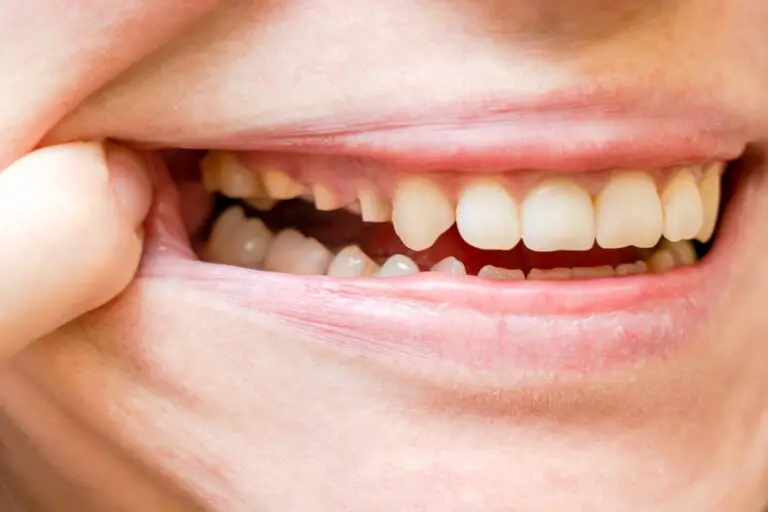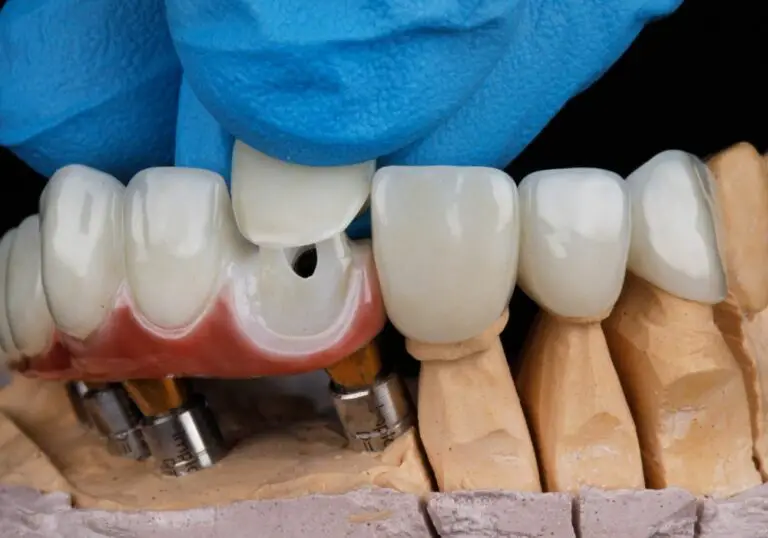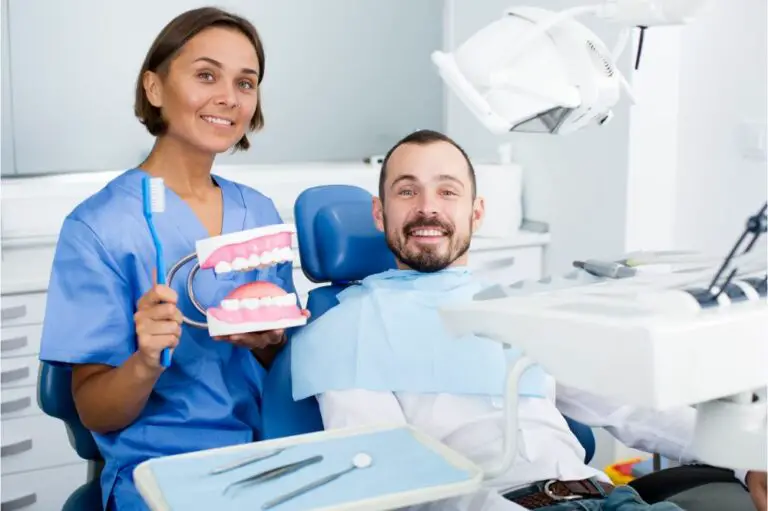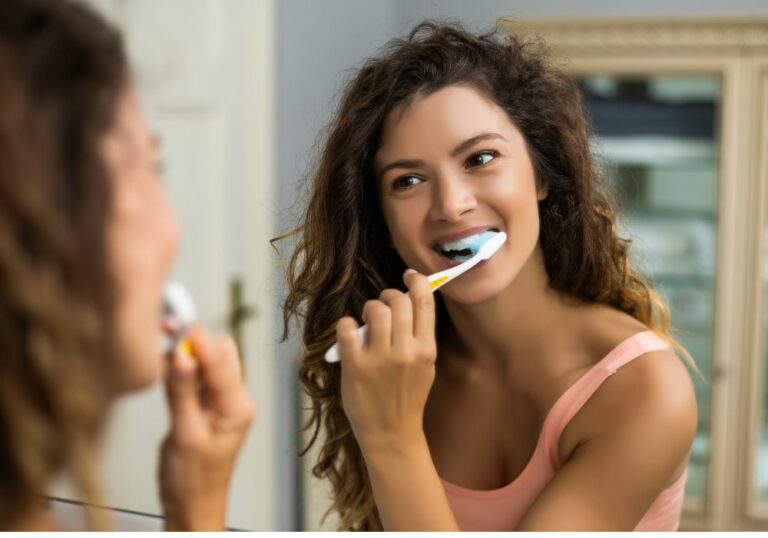Teeth grinding, also known as bruxism, is a common condition that affects up to 31% of adults on occasion, and 8-10% on a regular basis. It typically involves unconsciously clenching, gritting or grinding the teeth during sleep. Teeth grinding can lead to a variety of oral health complications if left untreated. Understanding the causes, symptoms and treatments for nighttime teeth grinding can help sufferers manage this disruptive sleep disorder.
What causes teeth grinding at night?
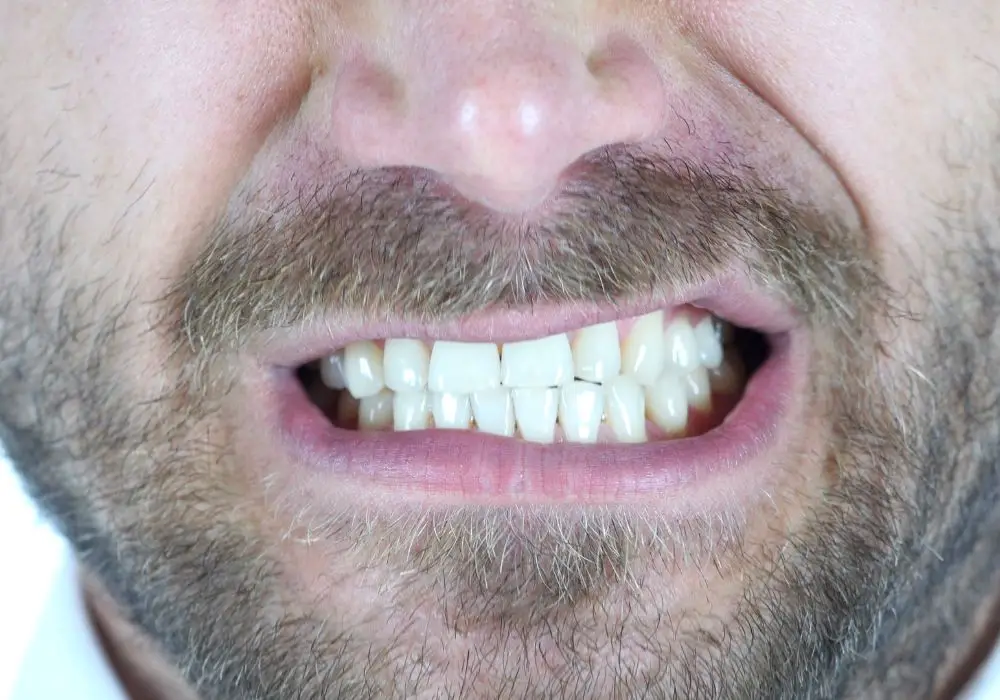
Stress and anxiety
One of the most common culprits of bruxism is stress and anxiety. The clenching or grinding is thought to be a physical manifestation of mental and emotional tension. Times of high stress at work, financial pressures, relationship issues or general worry can trigger teeth grinding at night. The unconscious habit seems to be an outlet for built-up stress and frustration.
Other sleep disorders
Other sleep disorders like snoring and sleep apnea can also contribute to teeth grinding at night. The obstruction of airways during sleep can cause physical arousal and light stages of wakefulness even while appearing asleep. These disruptions and arousals can prompt jaw clenching and teeth grinding. Treating conditions like sleep apnea may help reduce bruxism.
Medical factors
Certain medical disorders are associated with increased teeth grinding such as:
- Gastroesophageal reflux disease (GERD) – acid reflux
- Parkinson’s disease
- Epilepsy
- Headaches including migraines
- ADHD
The reasons behind the connections are not fully understood, but may involve disruptions in normal sleep patterns and pain responses. Managing the underlying medical disorder may help reduce bruxism.
Medications
Some medications have also been linked to teeth grinding including certain antidepressants, pain medications, antihistamines and amphetamines. Check with your doctor if you suspect a medication could be contributing to nighttime bruxism. Adjustments may help alleviate the side effect.
Malocclusion and misaligned bite
Issues with the alignment of the teeth and jaws can put abnormal pressures on parts of the mouth. This can prompt clenching or grinding to achieve a more comfortable bite. Problems like crooked teeth, missing teeth, and disorders of the temporomandibular joint (TMJ) may predispose some people to bruxism. Dental treatments can help correct bite issues and reduce grinding.
Genetics
Some studies suggest that bruxism may have a genetic component in some people. Having a close family member with teeth grinding makes it more likely for someone to develop the condition themselves. While not fully understood, genetics may play a role in regulating neurotransmitters and melatonin which help control sleep/wake cycles and responses to stress.
What are the symptoms of teeth grinding at night?
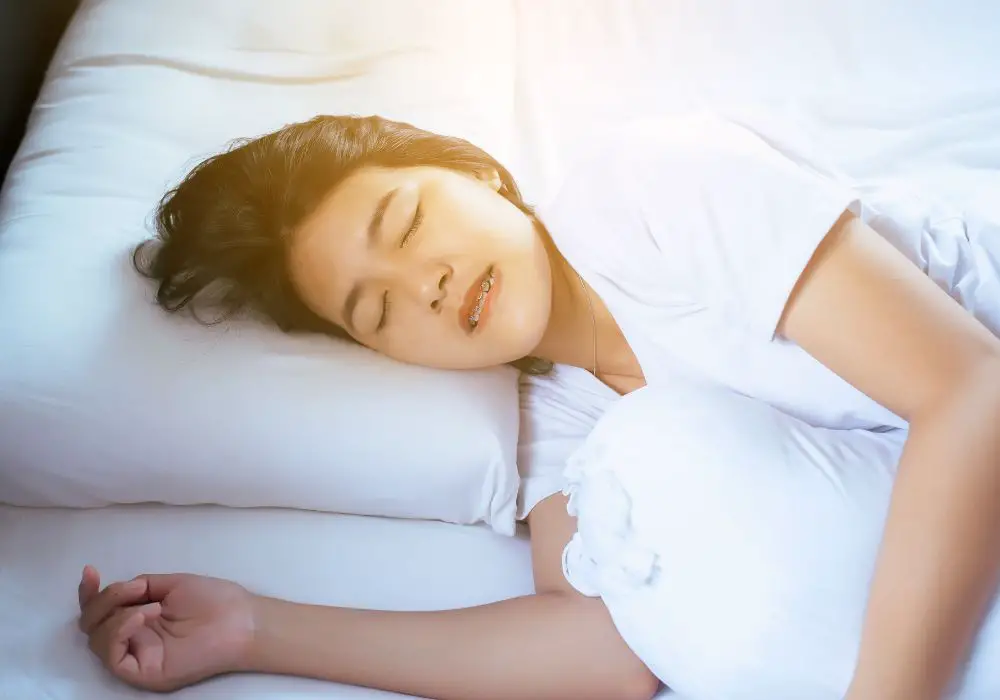
Teeth grinding at night often goes unnoticed by the sufferer themselves. But there can be a number of signs and symptoms upon waking:
Worn, damaged teeth
Excessive grinding puts severe pressure on the teeth and wears down the enamel. This can lead to cracked or fractured teeth, increased sensitivity, and a noticeably flattened appearance. Damage is usually most pronounced on the molars but can affect any teeth.
Jaw, face and ear pain
The strain of forceful grinding can cause pain in the muscles of the jaw, cheeks, temples and ears. Pain may be worse upon waking but improve after warming up the jaw. Severe cases can result in chronic discomfort, headaches and lockjaw.
Headaches
Frequent headaches, particularly in the temples, can signal nocturnal teeth grinding. The sustained tension in the jaw muscles during grinding can radiate pain to the head and neck. Headaches may coincide with morning jaw pain.
Sleep disruption
Though unaware during sleep, teeth grinding is associated with more frequent awakenings and reduced quality of sleep. Bed partners are more likely to notice grinding noises and movements. Sufferers often feel fatigued despite seemingly full nights of sleep.
Tongue imprints
Visible indentations on the sides of the tongue can indicate teeth grinding. The tongue gets pressed between teeth during clenching and leaves temporary imprints. These usually fade during the day. Other mouth irritation like cheek biting may also occur.
If you notice any signs of teeth grinding, discuss them with your dentist. An exam can help assess any dental damage as well as screen for bruxism risk factors. But since it happens during sleep, many people rely on loved ones to help identify possible grinding.
How is teeth grinding diagnosed?
Besides visual signs of damage and reported symptoms, dentists have a few methods to help diagnose teeth grinding:
Clinical exam
A dentist will check thoroughly for indications of bruxism like worn enamel, temperature sensitivity, fissures and loose teeth. Palpating the jaws and noting tension in the muscles can identify discomfort associated with grinding. The tongue, inside of the cheeks and patterns of occlusion will also be evaluated.
Patient history
Doctors will ask about medical conditions, stress levels, sleep patterns, medication use and other factors that may contribute to bruxism. Bed partners can provide useful observations about noises, jaw movements and sleeping disruptions. Screening tools like the Bruxism Grading Scale help quantify symptoms.
Home sleep study
Small wearable devices that monitor sleep often include detection of bruxism events. Simple EEG-based brain wave trackers like those from Zeo can identify grinding based on distinct sleep stage patterns. More comprehensive devices like respitrace belts also monitor jaw muscle contractions.
Polysomnography
Formal overnight sleep studies called polysomnograms involve extensive physiological monitoring. Brainwaves, heart rate, breathing patterns and video observation can precisely record teeth grinding episodes along with their timing and effects on sleep architecture. This is the gold standard for diagnosing sleep-related bruxism.
Intraoral devices
Custom dental splints and repositioning appliances worn at night can have embedded sensors to monitor grinding activity. Force-sensing resistors pinpoint locations and quantify grinding intensity over time. Smart splints can accurately measure bruxism patterns and guide treatment.
Early intervention is key to minimize extensive dental damage from chronic grinding and clenching. If you notice possible symptoms, see your dentist right away for proper diagnosis. You may then be referred to a trained sleep specialist for further evaluation if an underlying sleep disorder is suspected.
What are the treatment options for teeth grinding?
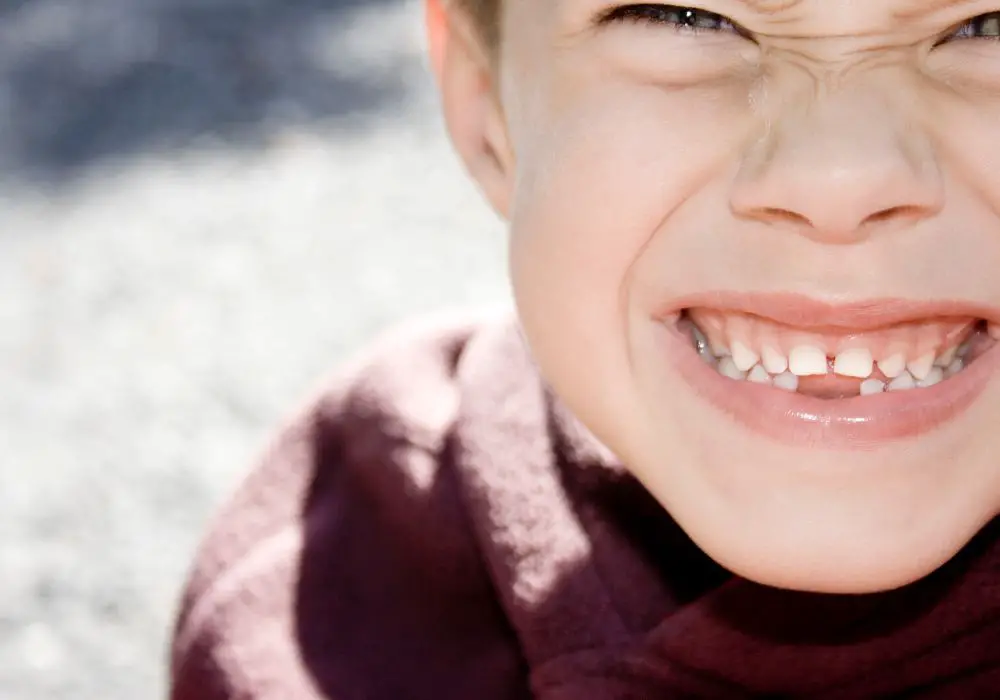
A variety of approaches are used to curb teeth grinding and protect dental health:
Stress management
Since stress is a major trigger, developing better coping strategies can help reduce grinding. Relaxation techniques like meditation, guided imagery, deep breathing and yoga may be beneficial. Massage, exercise and sufficient sleep also help manage stress levels. Consider cognitive behavioral therapy for excessive anxiety.
Dental approaches
- Mouthguards and occlusal splints – These coverings worn at night cushion the teeth from grinding forces. They distribute pressure evenly and prevent damage. Splints can also help reposition the jaw into better alignment. Custom-fit appliances provide the most protection.
- Botox injections – Botox can partially paralyze jaw muscles to reduce grinding power. Effects wear off over time so injections need to repeat every 3-4 months. Use is considered experimental but side effects are minimal.
- Occlusal adjustment – Selectively grinding down teeth minimally can create a more comfortable bite and reduce grinding tendencies. Can provide temporary relief only.
- Orthodontics – Correcting bite alignment and spacing problems with braces or other appliances may curb bruxism in some cases. Improving occlusion can remove pressure on the jaws.
Behavior modification
Making conscious efforts to relax the jaw muscles during times of stress can help override the grinding habit. Biofeedback tools can enhance awareness of jaw tension. Cognitive behavioral therapy aims to replace grinding with healthier alternatives.
Medications
Muscle relaxants like clonazepam can reduce grinding at night. Dopamine agents may help for those taking antipsychotic medications. But medications often have significant side effects with long term use. Their role in bruxism treatment is limited.
Botulinum toxin injections
Injecting botulinum toxin (Botox) into the chewing muscles can paralyze them for several months, providing temporary protection from grinding damage. Repeat injections are needed 2-3 times per year.
Stress reduction
Since stress and anxiety are major contributors to bruxism, developing healthy coping mechanisms are important. Relaxation techniques, counseling, massage, and sufficient sleep may all help reduce teeth grinding originating from mental tension.
A combination of dental appliances, medication adjustment, and stress management is often most effective to curb teeth grinding and its complications. Severe daytime pain, dental damage, locked jaws and chewing difficulties should be promptly evaluated by healthcare professionals to protect long term oral health.
Frequently Asked Questions about Teeth Grinding
Here are answers to some common questions about teeth grinding and bruxism:
What does teeth grinding sound like?
The sounds of bruxism can include audible grinding, gritting or clicking noises as the upper and lower teeth make forceful contact. It often resembles the chewing motion. Partners may also hear moaning or distressed breathing.
Can teeth grinding cause tooth loss?
Severe bruxism can chip away at tooth enamel and dentin over time. It can loosen teeth, expose nerve endings, and worsen gum disease. This excessive wear and tear raises the risk of eventual tooth loss if grinding is left uncontrolled. Prompt treatment helps preserve teeth.
Does teeth grinding affect sleep?
While not causing overall sleep loss, bruxism is associated with more frequent sleep disruptions and arousals throughout the night. This sleep fragmentation leads to less restorative, deep sleep stages. Excessive daytime drowsiness may result.
Can Botox stop teeth grinding?
Botox injections relax the chewing muscles which reduces grinding force. Repeat injections every 3-4 months are needed since the effects fade. While not a cure, Botox can be a helpful temporary protective measure along with other therapies.
How do you stop grinding your teeth in your sleep?
Treatments like dental mouthguards, proper stress management, and medication adjustments can all help reduce teeth grinding during sleep. Adding a humidifier at night and doing jaw exercises help loosen the muscles. Improving sleep quality is also beneficial.


